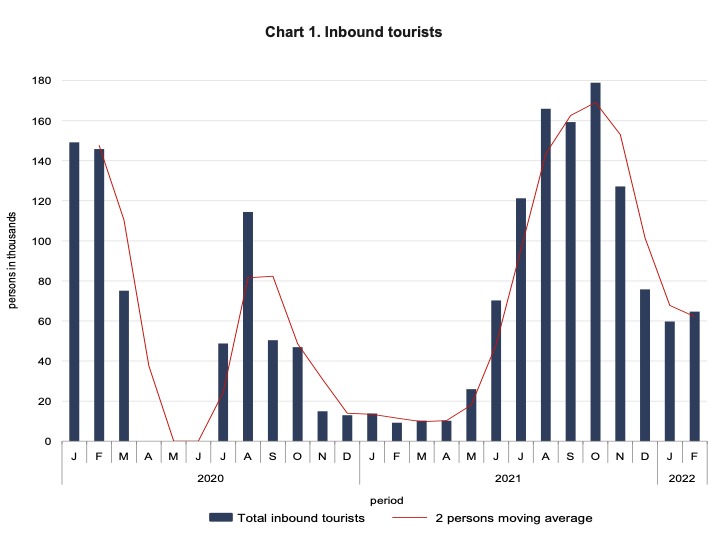Total tourist expenditure during February of this year reached almost €40 million, according to statistics released on Tuesday by the National Statistics Office (NSO).
The statistics show that during the month, a total of 55,887 inbound tourists visited the country for holiday purposes, whereas 5,050 visited for business purposes.
These figures represented just under 45 per cent of those recorded in February 2020, the last month largely undisrupted by the COVID pandemic in Europe.
The largest share of tourists were aged between 25 and 44 (42.2 per cent), followed by the age bracket of 45-64 (28.6 per cent). French, Italian and Polish residents made up 36.1 per cent of total inbound tourists.

NSO statistics also recorded 478 overnight cruise passengers during the month.
The largest share of guest nights (78.4 per cent), was spent in rented accommodation establishments, whereas the average length of stay of total inbound tourists stood at eight nights.
The average expenditure per night was estimated at €76.9.
The month’s arrivals brought inbound tourism figures for the year to 124,357, while the total nights spent surpassed one million nights.
This earlier figure was more than five times as high as it was in the same two months of 2021, but less than half of the 295,059 recorded in the pre-COVID months of 2020.
Total tourist expenditure was estimated at €86.9 million, while total expenditure per capita stood at €699, decreasing from €874 in 2021.
Malta’s youth population down by 15,000 in 10 years: What does this mean for the labour market?
'The challenge today goes beyond attracting talent – it’s about retaining it'
MBB urges caution over EU’s 2040 climate targets, citing risks for Maltese businesses
'The proposed target presents both opportunities and challenges'
db Foundation raises €8,419 for Karl Vella Foundation with MasterChef Malta Charity Dinner
These events form part of the db Foundation's ongoing commitment to supporting vulnerable members of society through impactful initiatives






